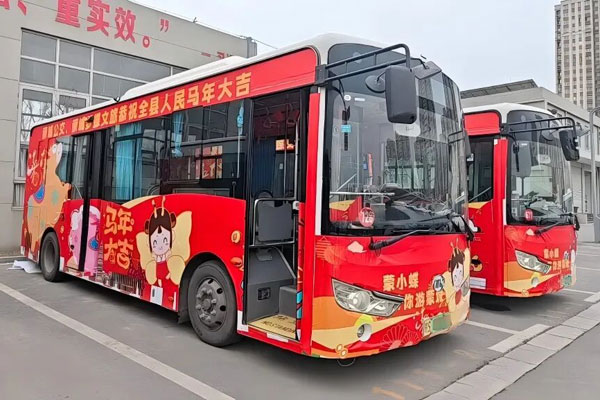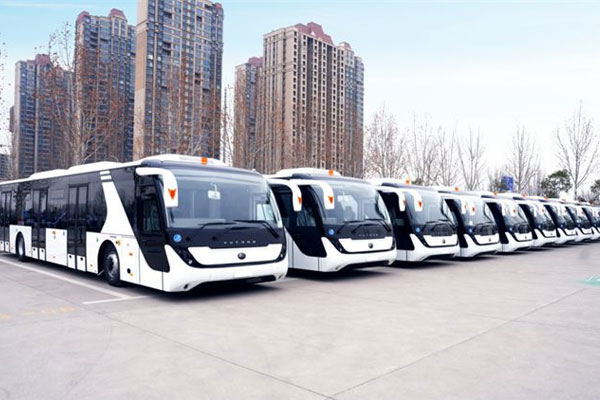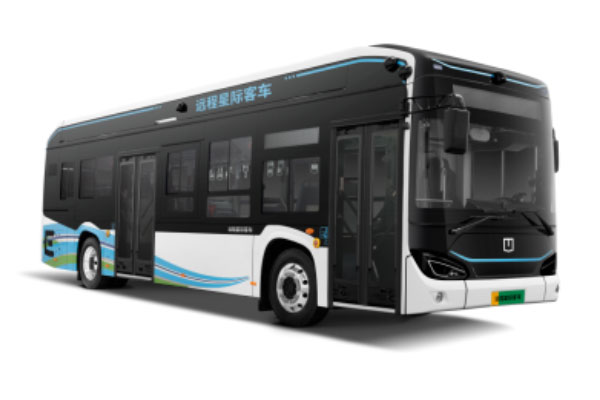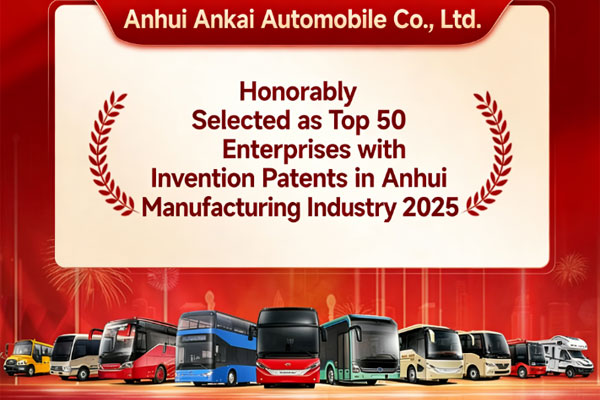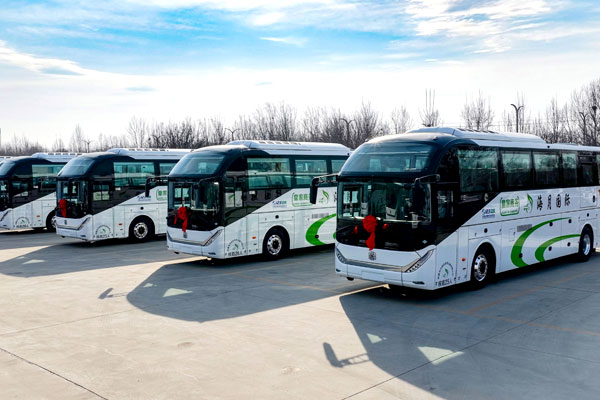INCREASINGLY MORE ELECTRIC BUSES
23 October 2019
In five years, the number of electric buses in Europe has increased from around 200 to 2,200 vehicles.
For 2019, the Polish bus manufacturer Solaris Europa claims to have concluded the most contracts for the construction of electric buses. There are now some 800 electric-powered Solaris circulating in 72 cities, including Berlin (90), Milan (250) and Warsaw (130). 47% of the buses built by Solaris are powered by an alternative propulsion system.
Since 2005, Van Hool has built 130 hydrogen fuel cell buses. For some time now, it has no longer been a matter of small orders, but of large orders for a few dozen vehicles destined for Cologne, Wuppertal and QBuzz, among others, in the Netherlands. A huge order of double articulated Van Hool Exqui.City tram buses was delivered to Trondheim, in Norway. The Van Hool factory in Macedonia is building 900 buses this year; the factory is designed for an annual capacity of 1,000 buses. The Van Hool plant in Morristown (Tennessee, USA) is expected to start building buses from 2022.
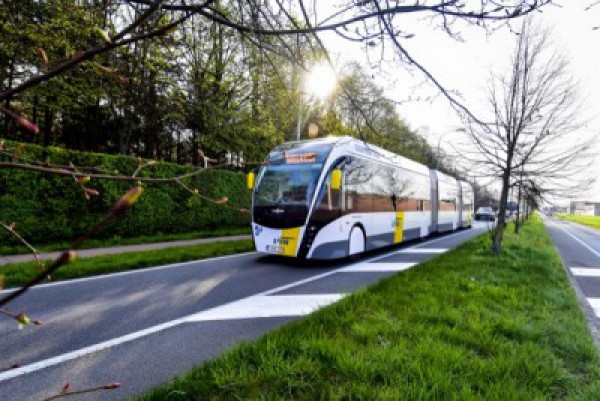
About 20% of the buses built by Scania are now CNG or biogas buses. Recently, the first LNG-fuelled coaches were delivered to a Spanish carrier.
In 2020, MAN, in cooperation with transport partners from five European countries, will have 15 MAN Lion City E-city buses tested in a day-to-day operation. The first series-produced MAN Lion City buses will be delivered in the autumn of 2020.
Volvo has upgraded its hybrid buses. They can now drive silently and emission-free up to 50 km/h, whereas previously this was only up to 20 km/h. Depending on the weather conditions and topography, up to one kilometre of emission-free driving is possible. Combined with GPS-controlled geo-fencing, the hybrid bus is now easier to drive in smaller environmental zones. The upgrade is available for the full range of Euro 6 hybrid buses. As a result, fuel consumption and emissions are up to 40% lower than with a conventional Euro 6 diesel bus.
CLIMATE NEUTRAL
In its 'Aiming for Zero' objective, VDL Bus&Coach is building a brand new, climate-neutral factory in Roeselare (Belgium), where the first buses will be built from the end of 2021 to the beginning of 2022. The industrial buildings will be designed in such a way that only electrically powered buses can be built in a climate-neutral and efficient manner. Meanwhile, almost 500 electrically powered VDL buses are in service in 11 countries. Taken together, they travel an average of 75,000 kilometres per day, resulting in a CO2 reduction of 70 tonnes per day.
With the X-Incity Energy Z, tyre manufacturer Michelin offers the very first 275/70R22.5 tyre that has the capacity to carry eight tonnes per axle in a single operation. This allows future generations of electric buses to increase their battery capacity. While current available tyres can carry up to 7.5 tonnes per axle, the Michelin 275/70R22.5 152/148J X-Incity Energy Z can carry up to 8 tonnes per axle. The tyre can be mounted on either the drive axle or the steering axle. The specific design of the tread and sidewalls has been optimised to meet the requirements of urban traffic and to reduce rolling noise and rolling resistance.
WORLDWIDE
The Chinese Yutong company delivers almost 25,000 new energy buses a year. That's equivalent to 375 per day. In 2018, Yutong built 60,868 buses, including 24,748 'new energy' buses. 7216 electrically powered buses were built and 589 of these have been on the road in Europe ever since. Worldwide, more than 120,000 Yutong electric buses are operating in more than 380 cities; resulting in a global market share of 15% for Yutong. For nine consecutive years, Yutong was the largest seller of new energy buses. With the U12 and the T13, Yutong has designed buses specifically for the European market.
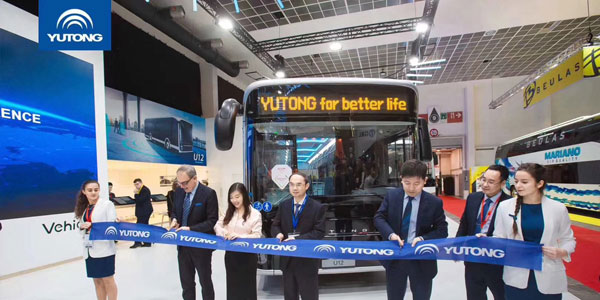
Eight years ago, BYD was the first exhibitor at Busworld (Kortrijk) to present an electrically powered bus. BYD prides itself on more than ten years of experience in building electrically powered buses and on more than a quarter of a century of craftsmanship in battery technology. BYD profiles itself as a total supplier that also provides, if necessary, the supply and installation of a solar park to generate green energy. Since the start of BYD in Europe, more than 50,000 electric buses have been delivered, most of them in Scandinavia and Spain. Meanwhile, BYD has its own factories in Hungary and France (Beauvais) and is collaborating closely with European suppliers, universities and transport companies in order to gain more knowledge about the European market.
Irizar will be present at Busworld Europe for the tenth year in a row, which also symbolises its tenth anniversary as an integral bus manufacturer, after having previously profiled itself as a coachworkbuilder. The Spanish manufacturer also celebrates its 130th anniversary. Recently, Irizar Benelux was founded and new distribution agreements were also concluded for Germany and Sweden.
At Busworld Europe, Temsa announced the start of a new episode in which the manufacturer wants to be more prominent in the segment of electrically powered buses. Following the already available 9-metre-long Avenue EV with pantograph, the Avenue Electron and the MD9 electriCITY, the TS 45 E, an electrically powered coach for the North American market, will be presented in the first quarter of 2020. By 2025, Temsa intends to develop a product range that will enable the company to be present in every segment.
Source : Busworld
Views:7093



